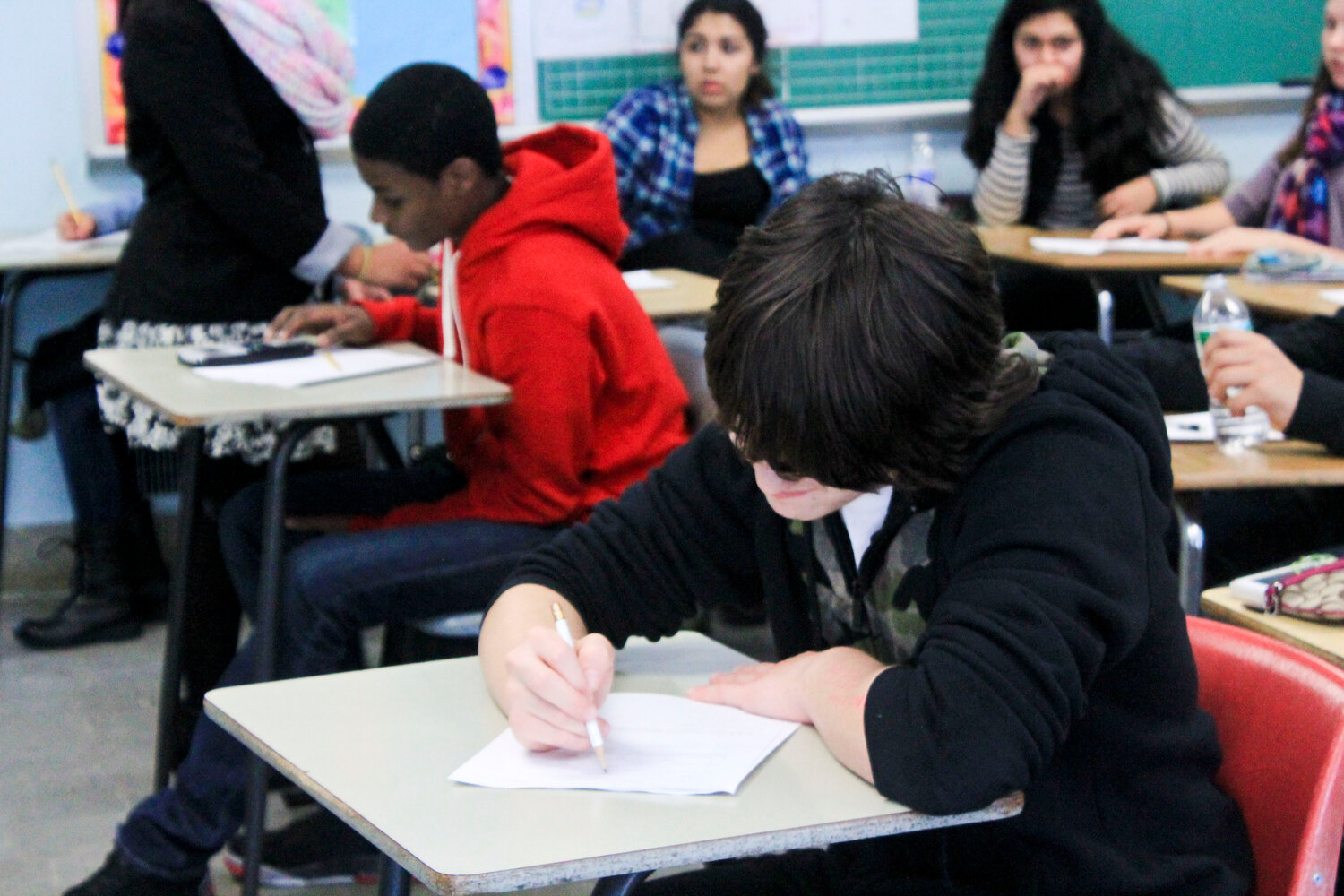What is the 'Do No Harm' policy?
The future of a policy aimed at protecting a student’s class average despite a poor performance on a state Regents exam is in question in the Hewlett-Woodmere school district.
The “Do No Harm” Policy omits students’ Regents exam grades from their class averages if they underperform on the state tests. It was introduced during the coronavirus pandemic due to the interruptions in instruction.
The Regents exams measure student achievement in high school-level courses. To graduate, students must pass five Regents exams: English Language Arts, math, science, social studies and an additional exam of their choice. Students can earn an Advanced Regents diploma if they pass additional exams. Some begin taking the tests as early as middle school.
The score on the Regents exam normally accounts for 20 percent of a student’s final average. If the Regents result were not figured in, each quarter’s grade would count for 25 percent of the final grade.
Amanda Kavanagh, the school district’s assistant superintendent for teaching, learning and technology, was expected to address the policy at Wednesday’s Board of Education meeting, after the Herald went to press.
Though the details of the policy can be viewed on the district’s website, Barbara Giese, a spokeswoman for Hewlett-Woodmere, said it would not discuss until Kavanagh made her presentation.
According to the website, the current school year was the first full return to pre-pandemic teaching and learning. Remote instruction has not been utilized, and students were taught Regents course curriculum in pre-pandemic fashion to prepare them for the exams, and are currently studying for them.
Ahead of a board work session scheduled for June 7 that was canceled as the Canadian wildfires wreaked havoc with local air quality, Valley Stream resident Amil Virani sent an email to board members and Superintendent Ralph Marino Jr. making the case that the “Do No Harm” policy should be extended for students who have not yet fully recovered to their pre-pandemic performance levels. Virani graduated from Lawrence High School in 2019.
“It would be unfair to deprive our students of the opportunity to achieve good grades based on a single exam that accounts for 20 percent of their overall grade,” Virani wrote. “We must prioritize their educational well-being and provide them with a fair chance of succeeding.”
The Lawrence school district also has a special policy of its own for its students from last school year for exams taken in June and August 2022, which continued this year for exams in January, June and August.
“If your child received a score of 50-60 on one or more Regents exams taken during one of more of the periods described above and attained a course average in the course that meets or exceeds the required passing grade in each quarter of the school year,” Andrew Weisman, Lawrence’s supervisor of pupil personnel services, wrote in a letter to parents, “he/she/they will receive a Special Appeal (SA) on their transcript.”
Even before the pandemic, the Hewlett-Woodmere district addressed the issue by incorporating a sliding scale for its students after the state Board of Regents adopted Common Core State Standards in 2010, because of the possibility of a negative impact of substandard Regents scores.
Virani argued that colleges and universities consider other factors when evaluating potential students, and do not base their potential on a single exam score. “Admissions processes have evolved to consider a holistic view of a student’s accomplishments, extracurricular activities and person qualities,” he wrote.
David Volpe, vice president of enrollment and marketing at Five Towns College, a four-year institution in Dix Hill, said he would not call a school district to ask why a student was exempt from a Regents exam.
“It’s the GPA, it’s the individual courses that were taken, certainly grades and specific courses that may be more in line with their intended major,” Volpe said. “We are SAT/ACT-optional, and we have students prepare a personal statement that we also review as well.”
“Extending the ‘Do No Harm’ policy for the New York State Regents is a progressive and fair approach to grades,” Virani wrote. “It recognizes that students’ abilities and potential cannot be reduced to a single exam score and ensures that their overall performance is accurately reflected.”
The Hewlett-Woodmere board of education voted in favor to extend the "Do No Harm" policy 6-1. Full story in the June 22 edition of the Herald.
Have an opinion on “Do No Harm”? Send a letter to jbessen@liherald.com.

 50.0°,
Overcast
50.0°,
Overcast 




